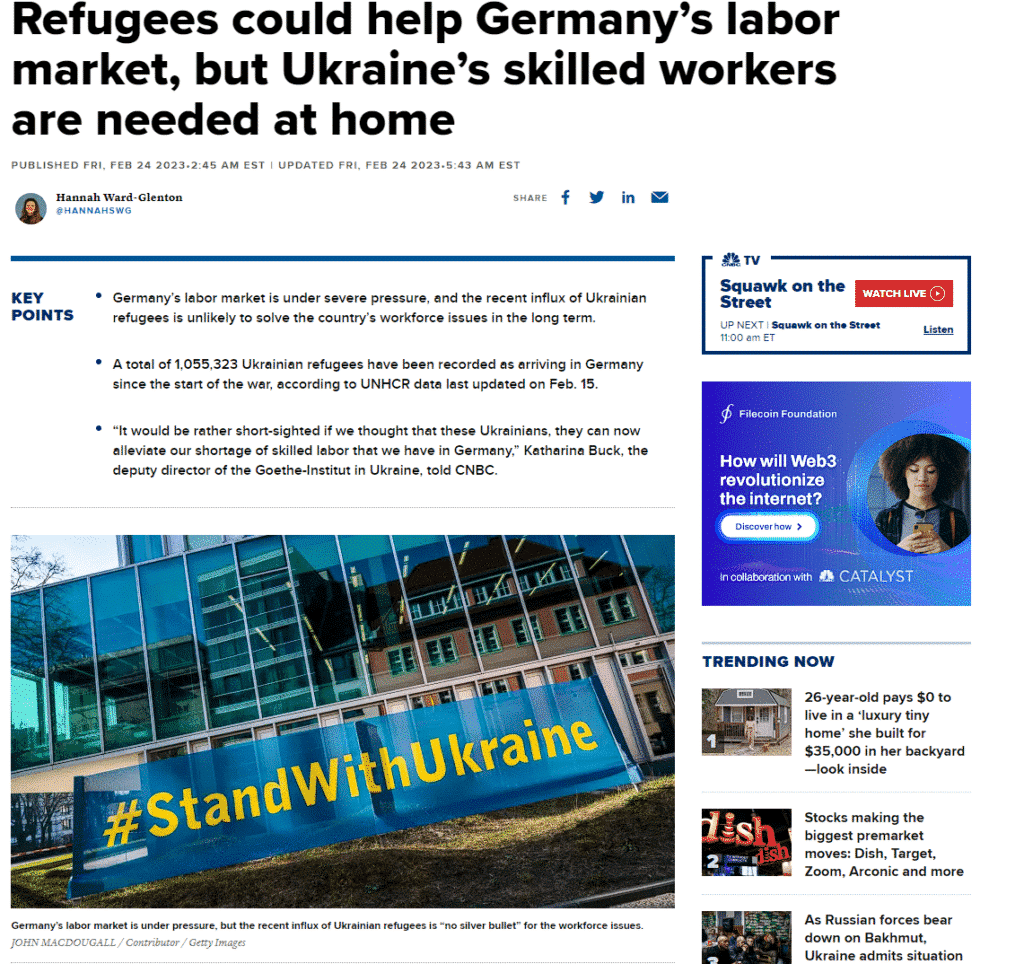Germany’s labor market is under severe pressure, and the recent influx of Ukrainian refugees is unlikely to solve the country’s workforce issues in the long term.
The employment rate in Europe’s largest economy hit a new record high in the fourth quarter of 2022, with 45.9 million people employed, according to the German Federal Statistical Office. But more than half of German companies are struggling to find skilled workers to fill vacancies, the German Chambers of Commerce and Industry reported in January.
Aside from Poland, Germany has taken in more refugees than any other region since Russia invaded Ukraine one year ago. The conflict has ravaged swathes of Ukraine and seen eight million people leave in search of safety.
Over a million of these Ukrainian refugees have been recorded as arriving in Germany, a country that has warmly welcomed them, with Chancellor Olaf Scholz saying it will help Ukraine for “as long as it takes.”
The arrival of these often highly educated Ukrainians could bring benefits for Germany, particularly when it comes to bolstering its workforce. (…)
Research by the EWL Foundation for Supporting Migrants on the Labour Market found that 22% of its 400 respondents chose Germany as a country of refuge based on its employment prospects.
But Ukrainian refugees can’t be expected to fill the gaps in the German labor market.
Language barriers
Around 60% of Ukrainian refugees in Germany perceived language barriers as the biggest challenge in their new environment, according to an OECD survey.
This comes despite the fact that almost half of the refugees who responded in the EWL study said that they had “at least a communicative level” of German, while 57% said that they were currently learning the language. More broadly, Ukrainians have a better grasp of the German language than most, and Ukraine is the fifth-biggest learner of German in the world in absolute terms, according to the Goethe-Institut. (…)




